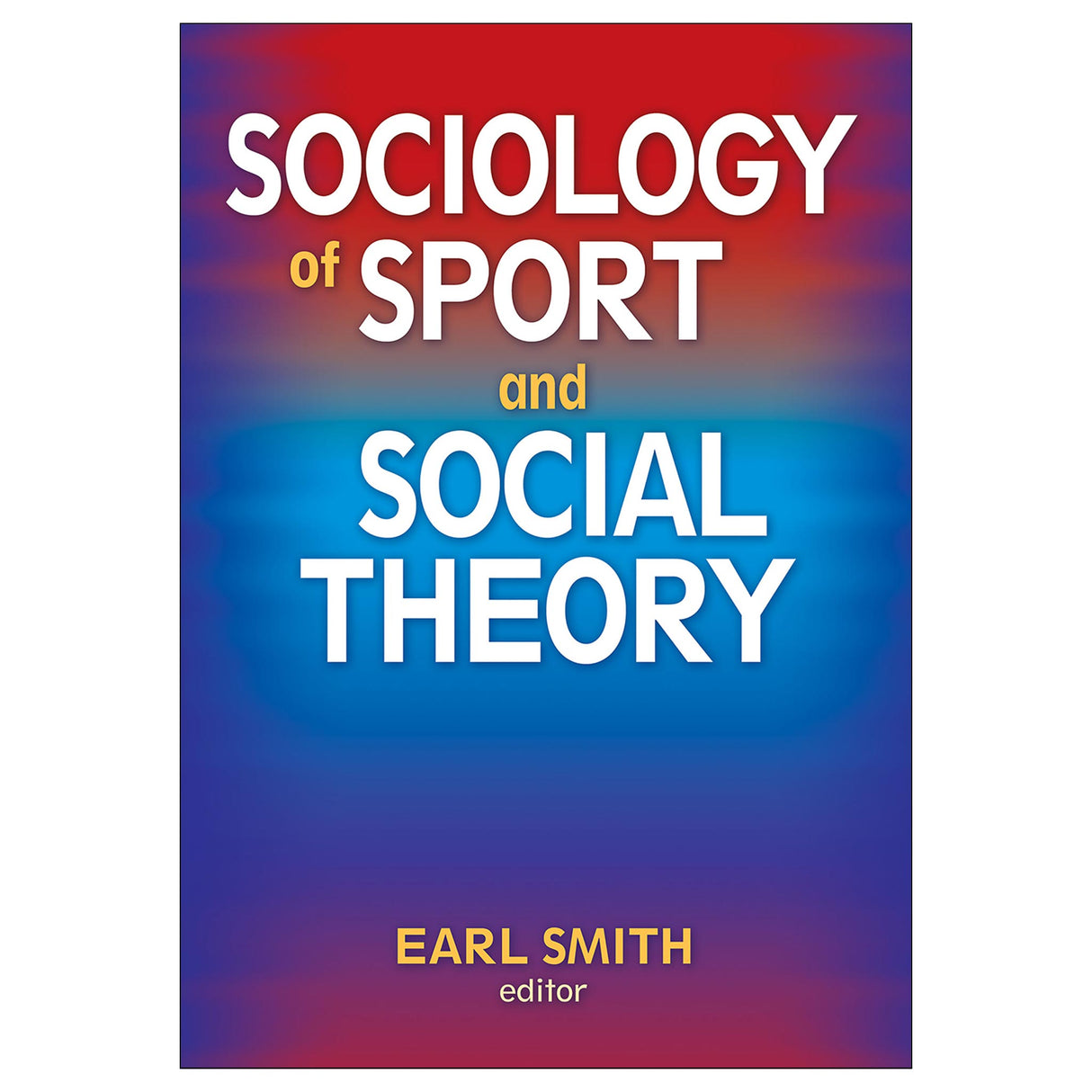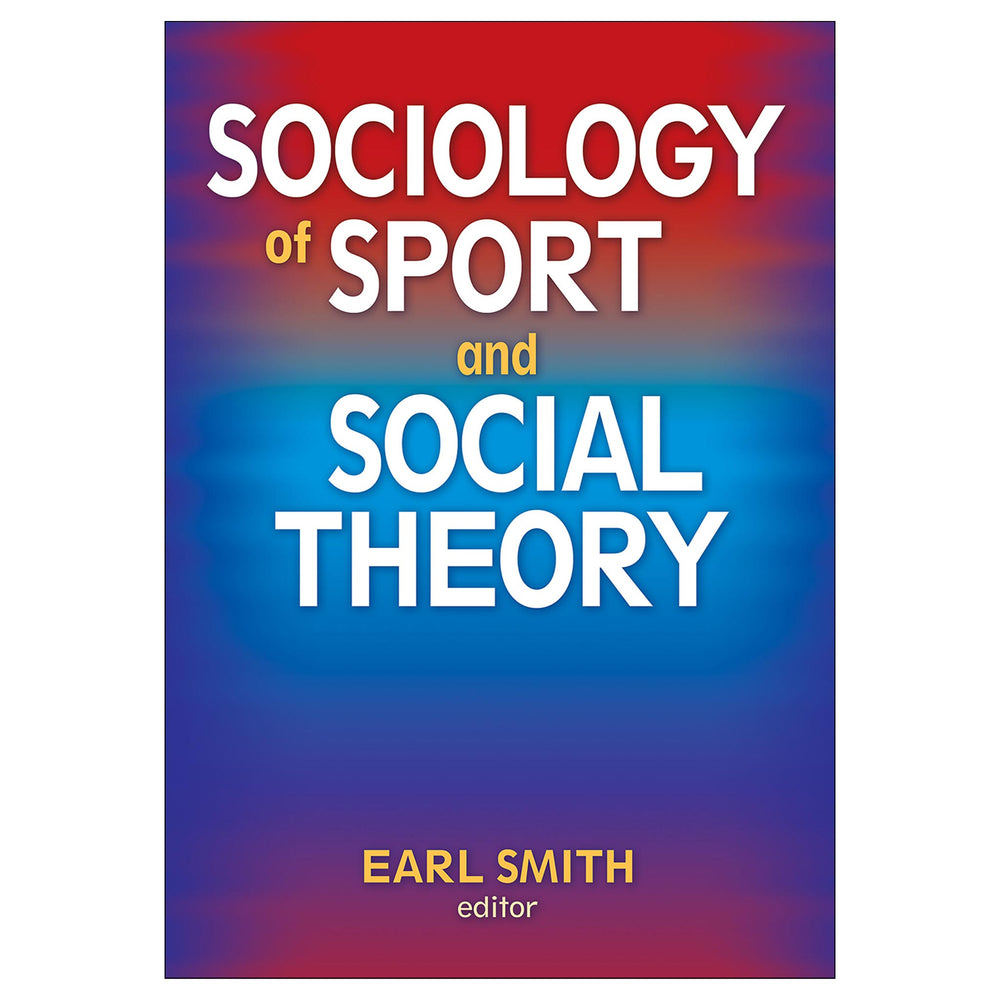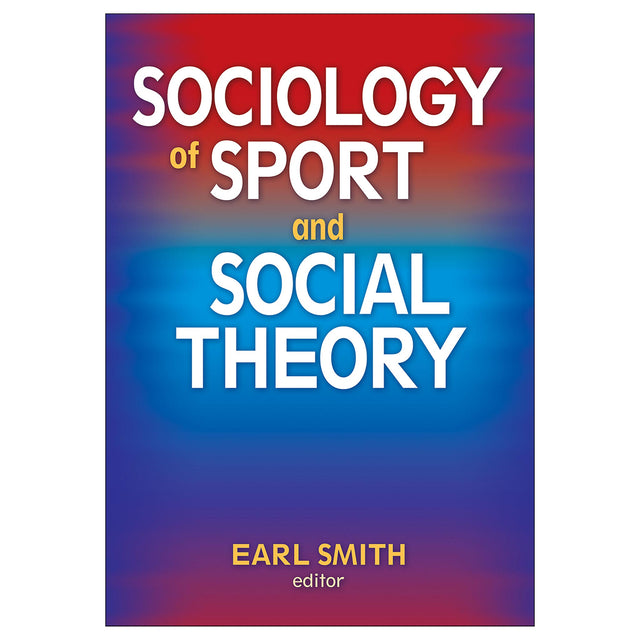Sociology of Sport and Social Theory
Author: Earl Smith
$96.95 CAD
Sociology of Sport and Social Theory presents current research perspectives from major sport scholars and leading sociologists regarding issues germane to the sociology of sport. Each chapter of this resource explains historical and contemporary social theories and applies these theories to current topics in sport, such as performance-enhancing drugs, gender, race and identity issues, and the role of religion in sport.
Sociology of Sport and Social Theory introduces readers to the historical and theoretical underpinnings of social theory, how sport studies have incorporated or diverged from these theories, and how the application of various sociological lenses to sport contexts may converge for future research. Merging the fields of sport studies and sociology, the text provides readers with
• a fresh view on how prominent social issues may be applied to exciting issues in sport;
• an opportunity to analyze engaging topics in sport, including Tiger Woods’ dominance, the costs of building stadiums, and NCAA institutional logic; and
• an accessible presentation of seemingly complex theories from scholars with backgrounds in sociology and sport studies.
Structured in four parts, this text expands discussion beyond theoretical paradigms typically employed by sport sociologists to consider traditional theories (conflict theory and structural functionalism) and contemporary sociological theories (feminist theory, social capital theory, and relational theory) and their application in sport contexts. Each chapter begins with a theory overview and concludes with suggestions for future research and an annotated list of additional resources.
In part I of the text, readers will encounter a Weberian analysis of sport, learn how Mills’ theory of the sociological imagination provides a lens through which an athlete-author can analyze athletic events, and read a discussion of Elias’ figurational theory as applied to issues of hooliganism in soccer. Mid-level sociological theories, which provide a moderate convergence of theory and empirical research, are the focus in part II of the text. Chapters in part III address sport-related issues of gender, race, ethnicity, and social class using the contemporary sociological views of feminist theory, social reproduction theory, hegemonic masculinity theory, and structuration theory. Part IV considers issues of power, personality, citizenship, and dominance in sport.
Sociology of Sport and Social Theory addresses a range of topics at the forefront of both scholarly and public discourse and provides readers the opportunity to consider these issues in light of traditional and contemporary sociological theories. With its broad range of perspectives and analyses, Sociology of Sport and Social Theory illustrates for students, sport scholars, and social scientists how sociological theory can provide a suitable framework for understanding patterns that exist in the world of sport.
Audience
A reference for sport sociologists, general sociologists or theorists with an interest in sport, and scholars in sport studies. Also for upper-level undergraduate and graduate students needing a text that relates sport with sociological theory.Part I. Great Theorists
Chapter 1. Toward a Sport Ethic: Science, Politics, and Weber's Sociology
Robert Beamish, PhD
Four Pure Types of Action
Science and Ethics: The Limits of Goal-Rational Action
The Politics of Ethical Conduct in Sport
Conclusion
Suggested Research
Additional Sources
Chapter 2. Civilizing Sports: Figurational Sociology and the Sociology of Sport
Eric Dunning, PhD
The Figurational Sociology of Sport and Its Critics
Criticizing and Testing Elias
The “Civilizing” of Modern Sports
Soccer Hooliganism as an English and World Problem
Conclusion
Suggested Research
Additional Resources
Chapter 3. Beyond the Sociological Imagination: Doing Autoethnography to Explore Intersections of Biography and History
Nancy Spencer, PhD
Sociological Imagination
Applying the Sociological Imagination to Research
Applying Critical Sociological Imagination to My Studies
Conclusion
Suggested Research
Additional Resources
Part II. Research Guided by Mid-Level Sociological Theories
Chapter 4. The Sociology of Science: Sport, Training, and the Use of Performance-Enhancing Substances
Ian Ritchie, PhD
Theories in the Sociology of Science
Sport and the Science of Training: The Conservation of Energy and Beyond
Understanding the Use of Performance-Enhancing Substances
Conclusion
Suggested Research
Additional Resources
Chapter 5. Political Economy: Sport and Urban Development
Kimberly S. Schimmel, PhD
Urban Political Economy and Urban Regime Theory
Sport Development and Urban Development in Historical Perspective
Sport, Urban Regime, and Urban Development in Indianapolis
Conclusion
Suggested Research
Additional Resources
Chapter 6. Institutional Logics Theory: Examining Big-Time College Sport
Richard M. Southall, EdD, and Mark S. Nagel, EdD
Theory of Institutional Logics
Case Study: 2007 NCAA Division I Women's Basketball Tournament Broadcasts
Conclusion
Suggested Research
Additional Resources
Chapter 7. Playing for Whom? Sport, Religion, and the Double-Movement of Secularization in America
David Yamane, PhD, Charles E. Mellies, BA, and Teresa Blake, BA
The Double Movement of Secularization
Societal-Level Secularization: The Differentiation of Sport from Religion
Sport as Civil Religion?
Organizational Innovation Connecting Religion and Sport
Religion and Spirituality at the Individual Level
Conclusion
Suggested Research
Additional Resources
Part III. Theories of Inequality
Chapter 8. Feminist Theory and the Study of Sport: An Illustration from Title IX
Angela J. Hattery, PhD
The First Wave
Modern Feminist Theory:The Second Wave
Postmodern Feminism: The Third Wave
Title IX and Gender Equity in Intercollegiate Sport
Discussion
Conclusion
Suggested Research
Additional Resources
Chapter 9. Social and Cultural Capital: Race, School Attachment, and the Role of High School Sports
Rhonda F. Levine, PhD
Theoretical Frameworks
Sport Participation, Academic Achievement and School Attachment
Role of Coaches
Conclusion
Suggested Research Additional Resources
Chapter 10. Race, Class, and Gender Theory: Violence Against Women in the Institution of Sport
Earl Smith, PhD, and Benny Cooper, BA
The Issue
Methods and Data
Discussion
Conclusion
Suggested Research
Additional Resources
Chapter 11. Masculinities and the Sociology of Sport: Issues and Ironies in the 21st Century
Bryan E. Denham, PhD
Hegemonic Masculinity
Constructions of Masculinity in Professional Football
Constructions of Masculinity in Hardcore Bodybuilding
Conclusion
Suggested Research
Additional Resources
Chapter 12. Getting Girls in the Game: Negotiations of Structure and Agency in a Girls’ Recreational Sport Program
Cheryl Cooky, PhD
Overview of Theories of Structuration
Culture
Girls in the Game
Cultural Analysis: Discursive Constructions of Sport and the "At-Risk" Girls
Helping Girls “At-Risk”: The Structure of “Girls in the Game”
“Doing Whatever We Want”: Reproductive Agency at GIG
Negotiating Agency and Constraint in Everyday Social Interactions: The Role of Culture in School-Sanctioned Verus Hip-Hop Femininities
Conclusion
Suggested Research
Additional Resources
Part IV. Microlevel Theories
Chapter 13. The Mundanity of Excellence: Tiger Woods and Excellence in Golf
Earl Smith, PhD
Tiger the Golfer
Theory of Dominance in Sport
Discussion
Conclusion
Suggested Research
Additional Resources
Chapter 14. Making it Big: Visible Symbols of Success, Physical Appearance, and Sport Figures
Bonnie Berry, PhD
The Null Hypothesis and Methodology
Observations of Sport, Fitness, and “Health” Magazine Images
Interpretations: Some Features on Which to Focus
Symbolic Interaction, Dramaturgy, and Image-Making
Conclusion
Suggested Research
Additional Resources
Chapter 15. Sport and Multiple Identities in Postwar Trinidad: The Case of McDonald Bailey
Roy D. McCree, PhD
Theoretical Considerations
Methodology
Athletic Representation and Multiple Identities: Trinidadian or British
Conclusion
Suggested Research
Additional Resources
Epilogue
References
Index
About the Editor





